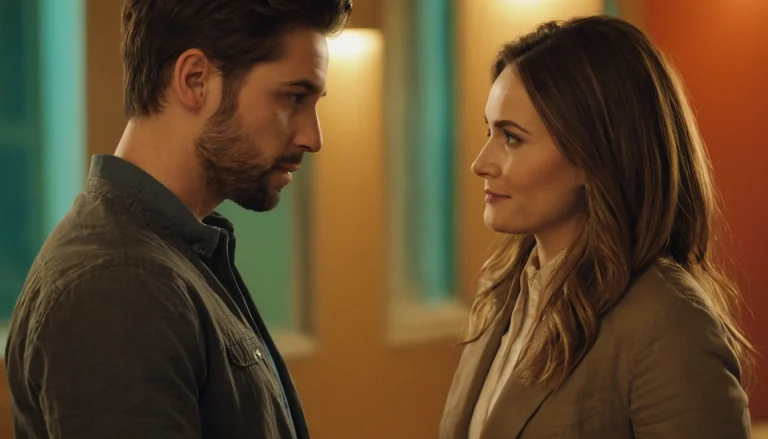I Don’t Get Enough Attention – What Should I Do?
You love your partner, but something feels off. Maybe they don’t ask about your day like they used to, or their eyes are glued to their phone when you’re talking. The little moments that once made you feel special are fading, and now, you wonder—are you asking for too much, or are they giving too little?
The truth is, relationships go through phases, and attention levels shift over time. Some partners show love through grand gestures, while others express it in quieter ways. But when you consistently feel overlooked or emotionally neglected, it’s a sign that something needs to change.
Let’s explore real-life stories shared by people in social media that highlight different ways people handle this issue—and what experts say about finding a solution that works. Their stories may sound familiar—perhaps even a little too familiar. As you read, see if any of these situations resonate with you. Maybe someone else’s experience will offer a clue to your own solution.
He Used to Text Me All Day—Now I Barely Hear From Him
Lena, 26, dating for two years.
“At the start, he’d send me cute messages, check in during the day, and tell me how much he missed me. Now, hours go by without a single text. I end up staring at my phone, waiting for something, anything. It makes me feel like I’m not on his mind anymore.”
Psychologist’s Insight
The early days of a relationship are often filled with excitement, but as things settle, people naturally return to their routines. Instead of assuming he’s lost interest, have a conversation. Share how much those little messages meant to you and ask about his perspective. Some people express love differently over time, and finding a middle ground is key.
Lena couldn’t shake the feeling of being sidelined. At first, she tried to ignore it—maybe he was just busy, maybe she was overthinking. But the silence stretched longer each day, and the pit in her stomach grew.
One evening, she finally brought it up.
“Hey, have you noticed you don’t text me like you used to?” she asked, keeping her voice light, though her heart pounded.
Jake barely looked up from his laptop. “We still talk every night, though. Does it really matter that much?”
“It does to me,” she admitted. “I just… miss feeling like you’re thinking about me during the day.”
He sighed, rubbing his face. “Lena, I’m not trying to ignore you. I guess I just don’t feel the need to text all the time anymore.”
His words stung. To her, texting wasn’t just a habit—it was a way to feel connected. To him, it was something that naturally faded as the relationship settled.
Psychologist’s Insight
The shift from constant communication to a more relaxed rhythm is common in relationships. The ‘honeymoon phase’ thrives on frequent check-ins, but over time, people return to their natural communication styles. Instead of assuming distance means disinterest, it’s important to understand each other’s expectations.
Lena decided to try something different. The next morning, instead of waiting for a text, she sent one first: “Hope you have a great day. Thinking of you!” Hours passed. Nothing.
By the afternoon, frustration bubbled over. She opened her chat, ready to type something snarky—when her phone finally pinged.
“Hey babe, crazy morning at work. Hope you’re having a good day too. Can’t wait to see you tonight.”
It wasn’t as constant as before, but it was something. And slowly, she realized that the love was still there—just expressed differently.
She Listens to Her Friends More Than She Listens to Me
James, 34, in a long-term relationship.
“When she’s with her friends, she’s all ears, laughing, engaged. With me, it’s different. I tell a story, and she barely reacts. I feel like background noise.”
Psychologist’s Insight
Sometimes, familiarity breeds complacency. Your partner may not realize they’re disengaging. Try shifting the dynamic—plan an outing, share something deeply personal, or even mention how much you appreciate it when they’re fully present. If they care, they’ll make the effort once they recognize the issue.
James tried to brush it off at first. Maybe she was just tired. Maybe she had already heard too many of his stories. But as time passed, the pattern became clearer. With her friends, Emily was animated—laughing, teasing, deeply engaged in every conversation. With him, she barely looked up from her phone.
One evening, after yet another dinner filled with distracted nods and one-word answers, he couldn’t hold it in anymore.
“Do I bore you?” he asked abruptly.
Emily frowned, finally setting her phone aside. “What? No, of course not. Why would you say that?”
James sighed. “Because when I talk, you barely react. But with your friends, you’re a whole different person. It’s like… I don’t excite you anymore.”
Emily opened her mouth, then hesitated. She hadn’t realized it before, but now that he said it, she could see why he felt that way.
“It’s not that,” she admitted. “I guess… I just assume you’ll always be there. With my friends, I feel like I have to be present. But with you, I know you love me no matter what.”
That hit James in a way he hadn’t expected. He loved that she felt safe with him—but did that mean she no longer put in the effort?
Psychologist’s Insight
Familiarity can make people stop trying. In long-term relationships, partners sometimes assume their presence is enough, forgetting that engagement and effort still matter. Feeling taken for granted can lead to resentment if it’s not addressed.
James and Emily decided to make a change. They set a rule—no phones at dinner. They planned a date night where they talked about new things instead of the usual routine. It wasn’t a magical fix, but over time, Emily became more present. And James, instead of assuming the worst, started noticing the quiet ways she showed love—like the way she always saved the last piece of cake for him or how she reached for his hand absentmindedly while watching TV.
Love hadn’t faded—it had just gotten comfortable. And sometimes, comfort needs a little wake-up call.
He Showers Our Dog With More Affection Than Me
Mia, 29, married for three years.
“Every time he comes home, he greets our dog with so much enthusiasm—belly rubs, baby talk, the works. Then he looks at me and just says, ‘Hey.’ I joke about it, but honestly, it stings.”
Psychologist’s Insight
People often give affection in ways that feel effortless to them. It’s possible he assumes you don’t need as much reassurance. Instead of feeling resentful, express your feelings directly. Let him know that you miss that kind of warmth between you two.
Mia tried to laugh it off. Every evening, she watched her husband drop to his knees, showering their dog with affection—his voice soft, playful, overflowing with love. And then, when he finally turned to her, it was just a quick, casual “Hey.” No warmth. No excitement. Just routine.
At first, she made jokes about it. “Should I start wagging my tail to get your attention?” But the more it happened, the more the sting grew. She started pulling away, answering his greetings with the same detached energy. If he wasn’t excited to see her, why should she be excited to see him?
One evening, after another emotionless hello, she finally blurted out, “Do you even miss me when we’re apart?”
Her husband frowned. “What? Of course I do.”
“Then why does it feel like you’re happier to see the dog than me?”
He sighed, rubbing his face. “Mia, I don’t even think about it. I come home exhausted. The dog is just… easy. No expectations. No conversations. Just happiness. I didn’t know you felt this way.”
Mia swallowed the lump in her throat. “Well, I do.”
Psychologist’s Insight
In relationships, people sometimes save their emotional energy for things that feel effortless—like pets, hobbies, or even strangers. Unlike partners, these things don’t require deep engagement or emotional labor. Over time, this can create an emotional gap, where one person feels overlooked while the other doesn’t even realize they’re pulling away.
Mia’s husband wasn’t being intentionally hurtful—he was just unaware of how his actions made her feel. But sometimes, unintentional neglect hurts just as much as intentional distance. And not all couples find a way back from it.
For Mia, this realization settled in like a heavy weight. She wasn’t sure if she wanted to keep explaining why she needed to feel special. She wondered how long she could stay in a marriage where she felt more like a piece of furniture than a person.
I Do Everything for Him, but He Never Notices
Emma, 31, living with her boyfriend.
“I cook his favorite meals, keep our home nice, support his career—yet he barely acknowledges it. A simple ‘thank you’ would mean the world to me, but he just expects it.”
Psychologist’s Insight
Unspoken expectations can lead to resentment. If he’s used to you always being there, he may take it for granted without realizing it. Express your need for appreciation. Sometimes, a small shift in awareness makes a big difference.
At first, Emma told herself it wasn’t a big deal. She wasn’t doing these things for the gratitude—she was doing them because she cared. But as the months passed, the lack of acknowledgment started to weigh on her. Every meal she cooked, every little thing she did to make their home feel warm—it all felt invisible.
One evening, after setting his plate down in front of him, she finally said it. “You never say thank you.”
Her boyfriend barely looked up. “For what?”
Emma felt her stomach drop. “For dinner. For everything I do around here.”
He shrugged, taking a bite. “You like cooking. And we both live here, so… I don’t know, I didn’t think I had to say thanks every time.”
She opened her mouth, then closed it. He wasn’t trying to be cruel. He just didn’t get it.
That night, Emma stopped setting his plate down for him. The next day, she only washed her own dishes. When laundry day came, she folded only her clothes. At first, he didn’t notice. But after a few days, he frowned. “Why didn’t you make dinner?”
She met his gaze evenly. “Because I didn’t think I had to.”
Psychologist’s Insight
Some people don’t realize they’re taking their partner for granted until something changes. It’s not always malice—it’s habit. If appreciation isn’t openly expressed in their upbringing or past relationships, they might not see the need for it now.
Emma’s reaction wasn’t about punishment—it was about breaking a pattern. When unspoken resentment builds, passive frustration often replaces direct communication. While conversations are important, sometimes actions speak louder. The real question is whether the other person listens—and whether they care enough to change.
She’s More Excited to Post About Us Than Actually Be With Me
Ethan, 27, dating for a year.
“She posts pictures of us online, writes cute captions, and makes it look like we’re the perfect couple. But in reality? She’s on her phone more than she’s talking to me. It feels fake.”
Psychologist’s Insight
Some people seek validation through social media rather than real-life interactions. If the digital ‘us’ matters more than the real ‘us,’ have an honest conversation. Ask if she realizes how this affects you, and set boundaries for tech-free quality time together.
At first, Ethan brushed it off. Maybe she was just excited to share their relationship with the world. But as time passed, he noticed a pattern—whenever they went on dates, her priority wasn’t being together but documenting that they were.
One evening at a cozy restaurant, she snapped a picture of their food before even picking up her fork. Then, she turned the camera on him. “Smile, babe.”
He did. Then he watched as she spent the next ten minutes editing, adding hashtags, and checking for likes. Their food got cold.
Finally, he sighed. “Do we have to do this every time?”
She barely glanced up. “Do what?”
“This.” He gestured at her phone. “It feels like you care more about how we look as a couple than actually being one.”
She frowned. “That’s not true. I just like sharing things. It’s how I show I’m proud of us.”
He wanted to believe that. But later that night, he checked her post. Dozens of comments. Heart emojis. People calling them “relationship goals.” And yet, he couldn’t remember the last time they’d had a deep, uninterrupted conversation.
Psychologist’s Insight
In the digital age, some people seek external validation for their relationship rather than investing in the connection itself. Social media can become a way to perform love instead of experiencing it.
Ethan’s concern wasn’t about posting pictures—it was about feeling secondary to an online audience. If your partner is more engaged with their followers than with you, it’s worth asking: Is this about us, or about how we look to others? A real relationship happens offline.
He Only Pays Attention When I Threaten to Leave
Sophia, 35, in an on-again, off-again relationship.
“The moment I say I’m done, he suddenly turns into the perfect boyfriend—texts, calls, surprises. But once he knows I’m staying, the cycle repeats.”
Psychologist’s Advice
This pattern suggests a fear of loss rather than genuine commitment. If someone only values you when you’re on the verge of leaving, ask yourself if this relationship is truly fulfilling. Love should be consistent, not conditional.
Sophia had lost count of how many times they’d broken up—only to get back together a few weeks later. Every time she reached her breaking point, he transformed. Suddenly, he was the man she fell in love with: attentive, affectionate, making grand gestures.
One time, after a huge argument, she told him she was done for good. That night, he showed up at her door with flowers, apologizing, promising change. He booked a weekend getaway just for them. And for a while, it worked. She felt wanted again.
But after a few weeks, things slid back into the old pattern. His texts got shorter. He was “too busy” to call. Their dates felt like routines instead of something he actually looked forward to. And then, inevitably, another fight, another breakup threat—another round of him proving he cared.
One day, Sophia confided in a friend. “Why does he only fight for me when I’m leaving?”
Her friend sighed. “Because he’s afraid of losing you. Not because he wants to keep you.”
That hit hard.
Sophia started paying attention—not just to his words, but to his actions in between the fights. And she realized the truth: he wasn’t building a strong relationship with her. He was just keeping her from leaving.
Psychologist’s Insight
This cycle often stems from a fear of loss rather than genuine commitment. Some people only show effort when they feel threatened—when they sense their partner slipping away. But real love isn’t about reacting to a crisis; it’s about consistent care.
If you notice this pattern, ask yourself: Do they love me, or do they just hate the idea of losing me? A healthy relationship isn’t built on temporary grand gestures—it’s built on steady, everyday effort.
He Zones Out When I Talk
Nina, 32, married for six years.
“I tell him about my day, and I can see it in his eyes—he’s somewhere else. I have to repeat myself constantly. It makes me feel invisible.”
Psychologist’s Insight
Sometimes, people check out mentally due to stress, exhaustion, or habit. Instead of getting frustrated, try engaging in a way that draws him back in—touch his hand, ask for his thoughts directly, or talk about something that interests him too.
At first, Nina tried to ignore it. Maybe he was just tired. Maybe work was stressing him out. But over time, the pattern became impossible to ignore.
She would talk, and he would nod absentmindedly, his eyes unfocused. Sometimes, he would check his phone mid-conversation, scrolling through messages as if she wasn’t even there.
One evening, as she was telling him about something funny that happened at work, she stopped mid-sentence. He’s not listening, she realized. He never listens anymore.
Her heart pounded as she finally asked, “Is there someone else?”
He hesitated. And in that hesitation, she already had her answer.
Her world tilted. The late nights at work, the secretive texts, the way he seemed emotionally detached—it all made sense now.
Now, she faced a painful decision: confront him fully, demand the truth, and decide what to do next.
Psychologist’s Insight
When a partner starts emotionally checking out, it can sometimes be a sign of infidelity. Not always—but if your gut is telling you something is wrong, don’t ignore it. Emotional distance, secrecy, and a sudden shift in attention can all be red flags.
If you’re in a similar situation, it’s important to trust your instincts and seek clarity. Open and honest communication is crucial, but so is self-respect.
👉 Recommended Reading: I suspect him of cheating, but I have no proof.
Final Thoughts
If you feel overlooked in your relationship, don’t suffer in silence. Express your feelings openly and honestly. Sometimes, people don’t realize how their behavior affects their partner until it’s pointed out. If the imbalance persists despite your efforts, seeking guidance—whether from a trusted friend, therapist, or self-help resources—can provide clarity on what steps to take next.
Recommended Reading
If you see yourself in Emma’s story, know that you’re not alone. Relationships are complex, and sometimes, distance and resentment creep in before we even realize it. Whether you’re trying to rebuild a connection or simply understand the dynamics of love and attachment, these books can offer valuable insights:
“Nonviolent Communication” by Marshall Rosenberg – Learn how to express your needs without conflict and truly be heard. This book teaches compassionate communication techniques that help partners connect without blame or resentment.
“Hold Me Tight” by Dr. Sue Johnson – Love isn’t just about attraction; it’s about emotional safety. This book introduces Emotionally Focused Therapy (EFT), a method that helps couples strengthen their bond by understanding their emotional needs. It’s an essential read for anyone who wants to move beyond surface-level conflicts and build deeper, lasting intimacy.
“The 5 Love Languages” by Gary Chapman – Ever felt like you’re speaking a different language from your partner? This book explores how people express and receive love in different ways—words of affirmation, quality time, acts of service, physical touch, and gifts. Understanding your love language (and your partner’s) can help you bridge emotional gaps and reconnect.
If you’re feeling lost in your relationship, these books can provide clarity, comfort, and real strategies to help you navigate love’s ups and downs. And remember, sometimes the best thing you can do is reach out—whether to a trusted friend, a professional, or even just someone who understands.








This part about ‘feeling like you’re invisible’ hit me hard. I’ve been in a relationship where it felt like I was always in the background, like my partner was distracted by everything else. I remember reading somewhere that sometimes it’s not intentional – they’re just caught up in their own stuff. I tried to bring it up gently once, and my partner didn’t take it well. So we kinda just avoided talking about it. I guess it made me feel like I wasn’t important enough to be heard, but maybe I should have tried again more openly.
Thank you for sharing your experience❤️ It’s definitely tough when communication isn’t easy, but sometimes just having that honest conversation can make all the difference. I hope things get better for you both!
I totally relate to this. A few months ago, I realized I was always the one putting in effort. I brought it up with my partner, and after a real conversation, he started making more effort. It made a huge difference just talking about it.